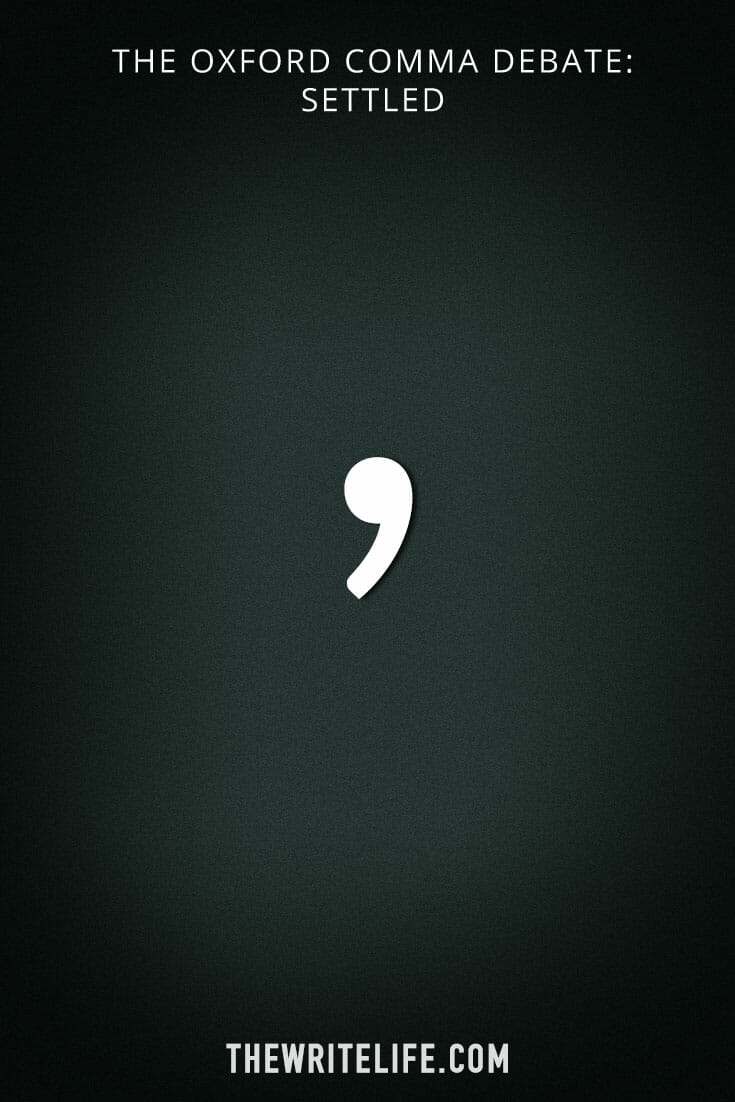Who cares about the Oxford comma?
The answer historically has been grammar nerds, Strunk & White and those who follow the infamous Chicago vs. AP writing style guide debate.
After this lawsuit a few years ago, we added dairy driver to the list.
That’s because an appellate court ruled in favor of Maine dairy drivers in a labor dispute that hinged on the oft-debated piece of punctuation.
For anyone who’s ever wondered what all the fuss is about over Oxford commas, the circuit judge’s 2017 opinion says it all: “For want of a comma, we have this case.”
What is the Oxford comma or the serial comma?
For those in need of a grammar rules refresh, here’s a quick overview of the Oxford comma.
Sometimes called the serial comma, the Oxford comma is a comma placed between the last two items in a series of three or more.
For example, the Oxford comma falls after “hat” in this sentence:
“She wore a jacket, hat, and mittens.”
While some writing style guides do not use the Oxford comma, supporters say it’s necessary to avoid potential ambiguity. And if there’s one thing writers can agree on, it’s the importance of clarity. In some cases, an extra comma matters.
Does AP style use the Oxford comma?
The short answer: No.
Many writers, including journalists, live by the Associated Press stylebook. AP style does not use Oxford commas.
However, Chicago style does require Oxford commas. That’s the Chicago Manual of Style, which is commonly used by book publishers, academics and trade publications.
So the decision about whether to use an Oxford comma relies on what type of writing you’re doing, and which style guide applies to that project.
If you’re writing for a news site, you probably want to follow AP style and avoid the Oxford comma. If you’re writing a novel you plan to submit to publishers, you probably want to follow Chicago style, which does use the Oxford comma.
An Oxford comma example
Let’s review how the Oxford comma works.
Here’s an example of a sentence with the Oxford comma: “I admire my parents, Gandhi, and Mother Teresa.”
It’s clear in this example that I admire my parents, as well as Gandhi and Mother Teresa.
But remove that serial comma, and the sentence reads, “I admire my parents, Gandhi and Mother Teresa.” One could argue that, written this way, the sentence implies that Gandhi and Mother Teresa are my parents. While the average person would know this isn’t likely to be the case, it illustrates how easily a missing comma can change the meaning of a sentence.
(Dictionary.com offers more funny examples.)
It was precisely this type of ambiguity that led to the Maine case with the dairy farmers — the oxford comma lawsuit.
The Oxford comma debate, and a $10 million comma
In this class action lawsuit, drivers for Oakhurst Dairy sued the company over its failure to grant them overtime pay.
Workers in Maine are entitled to 1.5 times their normal pay for hours worked over 40 per week, according to state law. However, there are exemptions to this rule. Specifically, the law states, companies don’t have to pay overtime for the following activities:
The canning, processing, preserving, freezing, drying, marketing, storing, packing for shipment or distribution of:
- Agricultural produce;
- Meat and fish product; and
- Perishable foods
Note the end of the opening line, where there is no comma before the “or.”
Oakhurst Dairy argued its drivers did not qualify for overtime because they engage in distribution, and the spirit of the law intended to list “packing for shipment” and “distribution” as two separate exempt activities.
However, the drivers argued the letter of the law said no such thing. Without that telltale Oxford comma, the law could be read to exclude only packing — whether it was packing for shipment or packing for distribution. Distribution by itself, in this case, would not be exempt.
Without that comma, as the judge maintained, this distinction was not clear-cut:
If that exemption used a serial comma to mark off the last of the activities that it lists, then the exemption would clearly encompass an activity that the drivers perform. And, in that event, the drivers would plainly fall within the exemption and thus outside the overtime law’s protection. But, as it happens, there is no serial comma to be found in the exemption’s list of activities, thus leading to this dispute over whether the drivers fall within the exemption from the overtime law or not.
As a result, the court found in favor of the drivers, costing the dairy an estimated $10 million.
Comma rules: To comma, or not to comma?

As a diehard Oxford comma loyalist, this ruling made my day.
While many of the sites I write for as a freelance blogger follow AP style (including this one), which is sans-serial comma, I still sneak one in when it seems needed to avoid confusion. This case backs up that habit as more than just an old-school tic I haven’t yet let go.
While the debate may still rage on over whether Oxford commas are necessary all the time, this ruling upholds the practice of using them when they’re essential to ward off ambiguity.
So, who care about the Oxford comma? The answer, according to the courts, is officially: anyone who’s interested in clarity.
Take that, AP style!
This is an updated version of a story that was previously published. We update our posts as often as possible to ensure they’re useful for our readers.
Photo via Lamai Prasitsuwan/ Shutterstock
The post A Win for the Oxford Comma: This Lawsuit Shows Why It’s So Important appeared first on The Write Life.
Be First to Comment